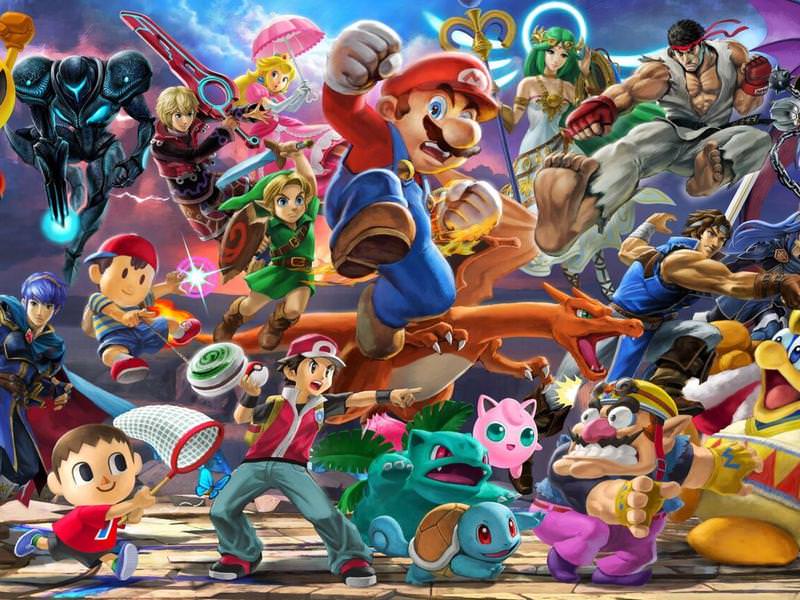‘Donkey Kong Country: Tropical Freeze’ Game Review: King Of The Jungle & Platforming
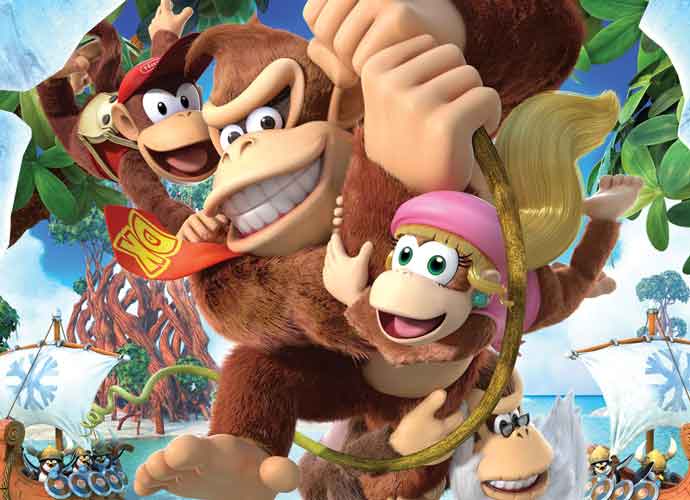
Debuting in 1981, Donkey Kong is one of Nintendo’s oldest and most well-known franchises. However, it was Rare’s 1994 classic Donkey Kong Country that defined much of the brand’s iconography, progressing the series beyond the construction sites and jungles that mostly characterized it up until that point.
Following Microsoft’s acquisition of Rare in 2002, Donkey Kong’s profile dropped off, only regaining prominence in 2010 when Nintendo published the aptly-named Donkey Kong Country Returns for the Wii. It was developed by one of Nintendo’s most acclaimed internal teams, Retro Studios, and inspired a humble handful of imitators. In 2014, Nintendo and Retro released Donkey Kong Country: Tropical Freeze for the Wii U, a direct follow-up to Returns, that failed to recapture its predecessor’s success.
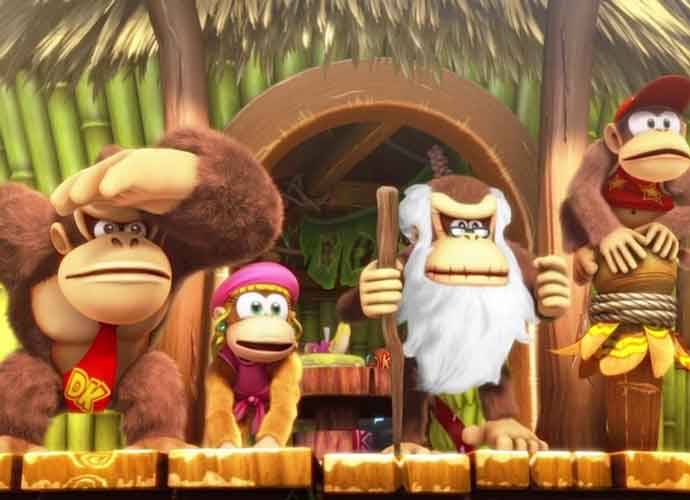
Nintendo’s Switch, however, has been giving select Wii U titles a second chance at life, and Tropical Freeze is one of the latest titles to receive that honor. So, was the chilly reception to Tropical Freeze four years ago justified?
DONKEY KONG COUNTRY: TROPICAL FREEZE REVIEW
The Donkey Kong series isn’t cherished at large for its narratives, and Tropical Freeze’s is similarly light. The Snowmads, a malicious group of vikings, used their magic to whisk Donkey Kong and his closest friends off of his namesake island (on his birthday, no less), freezing it over and claiming it for themselves. Our lead isn’t about to allow his property to be taken, however, and it’s up to him and the Kong clan to reclaim their home.
As noted, Tropical Freeze is Returns’ successor and it’s obvious; all of Returns’ gameplay mechanics (aside from blowing) return, refined to a greater degree. You’ll ease into the control setup if you’re familiar with Returns, though you’ll swiftly be brought up to speed even if you aren’t. Moving your mascot is done via the control stick, jumping and attacking are assigned to their respective buttons, and grabbing on to or interacting with objects is carried out by pressing and holding the lower shoulder buttons. If you press the jump button as you bounce on an enemy, your Kong will jump off from its head higher. And Donkey Kong himself moves smoothly, with a nice sense of heaviness and momentum.
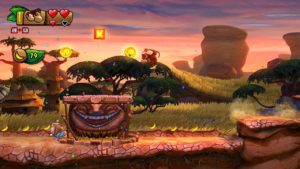
Donkey Kong’s attacks are his iconic roll and ground slap. The former is performed while moving, keeping up Donkey Kong’s momentum, and if a partner is present, he can use it indefinitely and to skip atop the water. The latter can only be executed while stationary. Striking the ground is used more so to interact with the environment than as a proper attack, though it does stun foes. Moreover, Donkey Kong’s moveset is augmented by his three companions, with all three bestowing DK with their signature abilities: Diddy Kong’s Barrel Jet allows him to hover, Dixie Kong’s Helicopter Spin gives DK a lift and Cranky Kong’s cane bouncing jumps off of spiked hazards. All three skills are weaved into the level design, with certain collectables and paths requiring them. Exclusive to the Switch is the new Funky Mode, allowing newcomers to play as Funky Kong in his adventuring debut. His namesake mode is easier to accommodate newcomers – Funky has access to most of the Kong’s talents, and he can take five hits – but Funky’s sizable movement options can add value for more experienced players.
Tropical Freeze is structured as its precursor was, with each world represented through a map screen, littered with a few hidden paths and secret stages to uncover. Furthermore, its level design is admirably dense and dynamic; it’s typical for Nintendo’s platformers, such as the fun yet sterile New Super Mario Bros. series, to feature a gimmick per stage, but Tropical Freeze advances that structure further. Tropical Freeze is also incredibly inventive with how its stages play out; from the impact Donkey Kong’s weight can have on set pieces to how the stage elements interact with each other, Tropical Freeze’s level design organically unfolds in exciting ways, constantly utilizing new ideas. It’s also well-tailored to speedrunning, thanks in part to enemy placement, and a Time Trials mode is included for those who want to test their mastery.

Speaking of mastering the levels, each stage hosts collectable trinkets for you to procure. The KONG Letters are generally out in the open, but often require a daring maneuver to collect, whereas Puzzle Pieces are hidden, demanding you examine each stage closely. One disappointment with Tropical Freeze is in its bonus rooms; in Donkey Kong Country 2 and 3, bonus rooms offered a nice variety in their challenges, whereas Retro Studios’ only ever challenge you to collect all of the bananas situated within them. There is some degree of variance in these rooms, sure, but Rare’s method interjected more interesting supplemental challenges. It isn’t a significant determinant to the experience, but it is one facet I hope the next Donkey Kong Country installment improves.
As with Returns, Tropical Freeze has three recurring stage types featuring ridable assets. The Kongs’ family friend Rambi reprises his role as their bulky steed, and his movements, though much heavier than DK’s, share the same fundamentals. Mine carts and Rocket Barrels likewise reappear, both of which still move you forward automatically as you ride them. Rocket Barrels require you to tap the action button strategically to maintain your altitude while avoiding hazards, whereas you’ll press it to jump while commandeering a mine cart.
Aesthetically, Tropical Freeze is gorgeous, boasting intricate visuals while maintaining a smooth 60 frames per second whether the Switch is docked or in handheld mode. (Oddly, Donkey Kong’s design was tweaked slightly, gaining more pronounced nostrils in the Switch conversion.) Character animations are just as polished as the environments, portraying the cast’s amusing personalities and quirks.
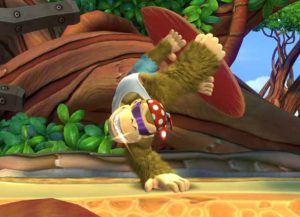
Veteran Donkey Kong composer David Wise composed the soundtrack too, flirting with nostalgia by remixing fan favorites such as “Aquatic Ambience,” “Lockjaw’s Saga” and “Stickerbush Symphony” while also creating atmospheric new pieces befitting the distinct stylings and moods of each biome, with “Snowmads’ Theme” and “Grasslands Groove” being two of the standouts. Plus, the music reacts to the on-screen actions by, for example, shifting into a more relaxing variation of the melody when your Kong dives underwater or when they’re jumping along the falling leaves in the autumn-themed Horn Top Bop.
Donkey Kong is a brand I’m markedly familiar with; five of the 18 articles I’ve written for neighboring website Source Gaming pertain to the series, and I periodically joke that I’ve met the great ape once. Speaking as an authority, Tropical Freeze is potentially the strongest installment in its franchise and, by extension, one of the best, most polished entires in its genre. If you missed Tropical Freeze the first time around, I implore you to check it out this time.
